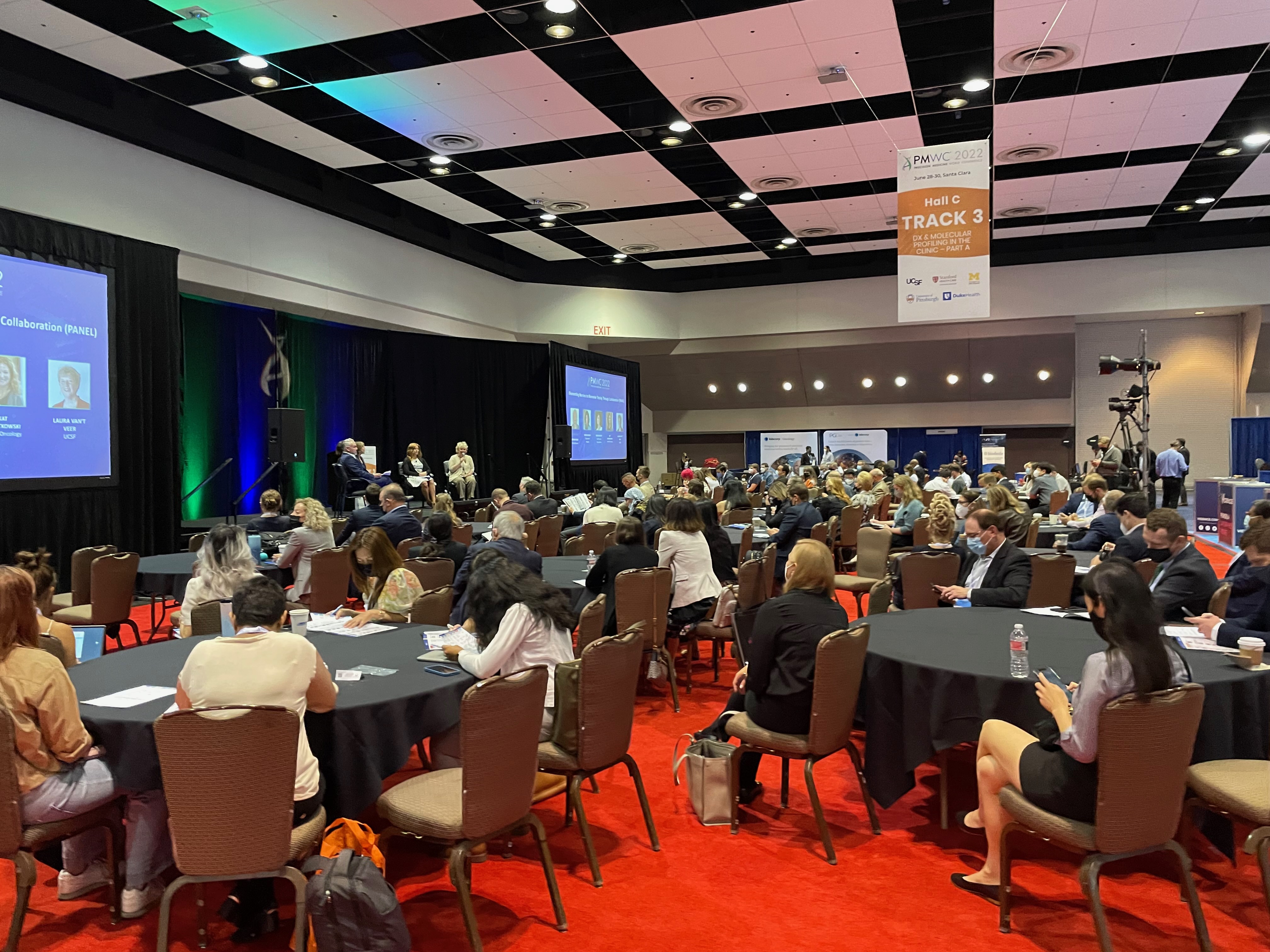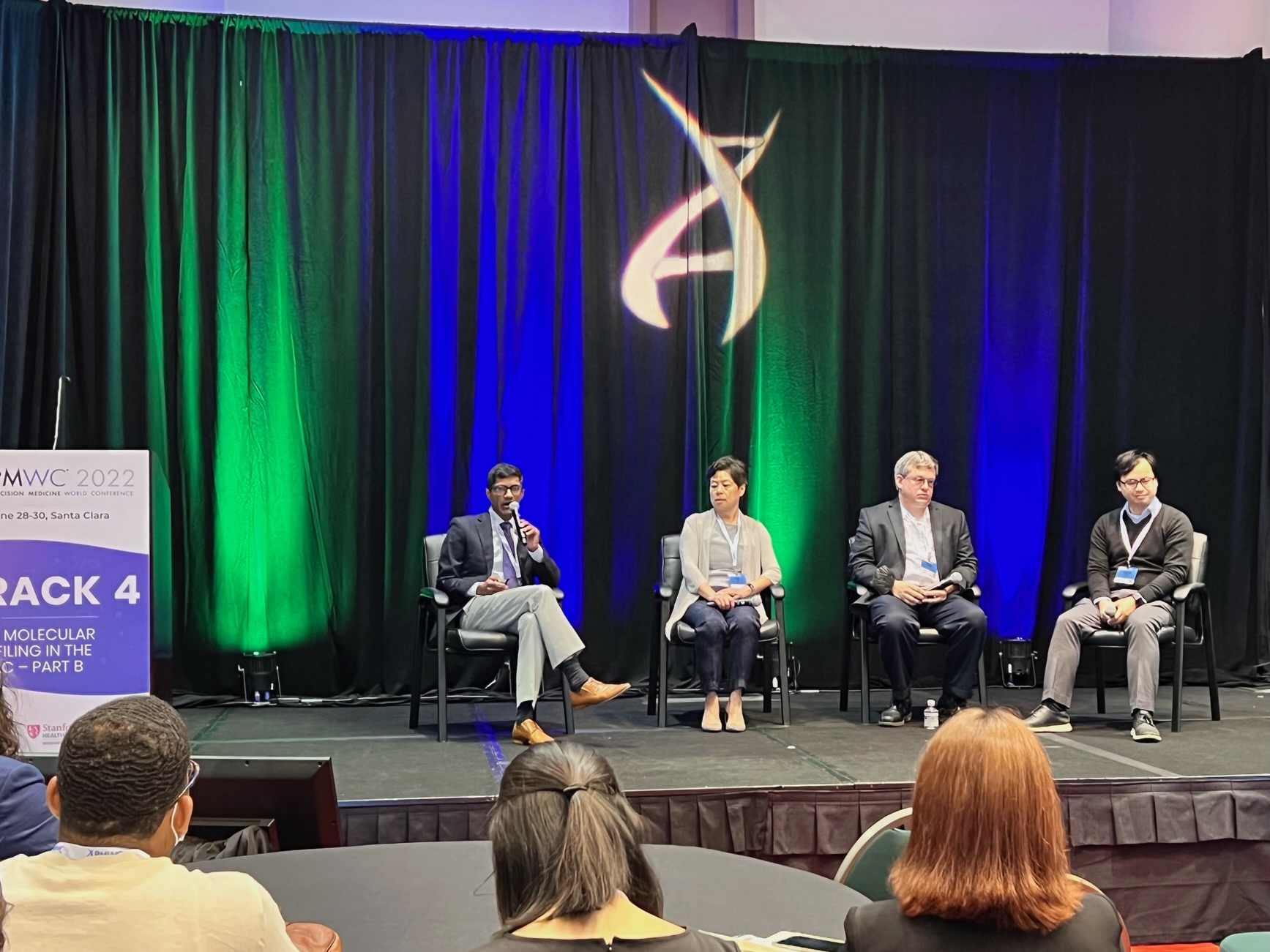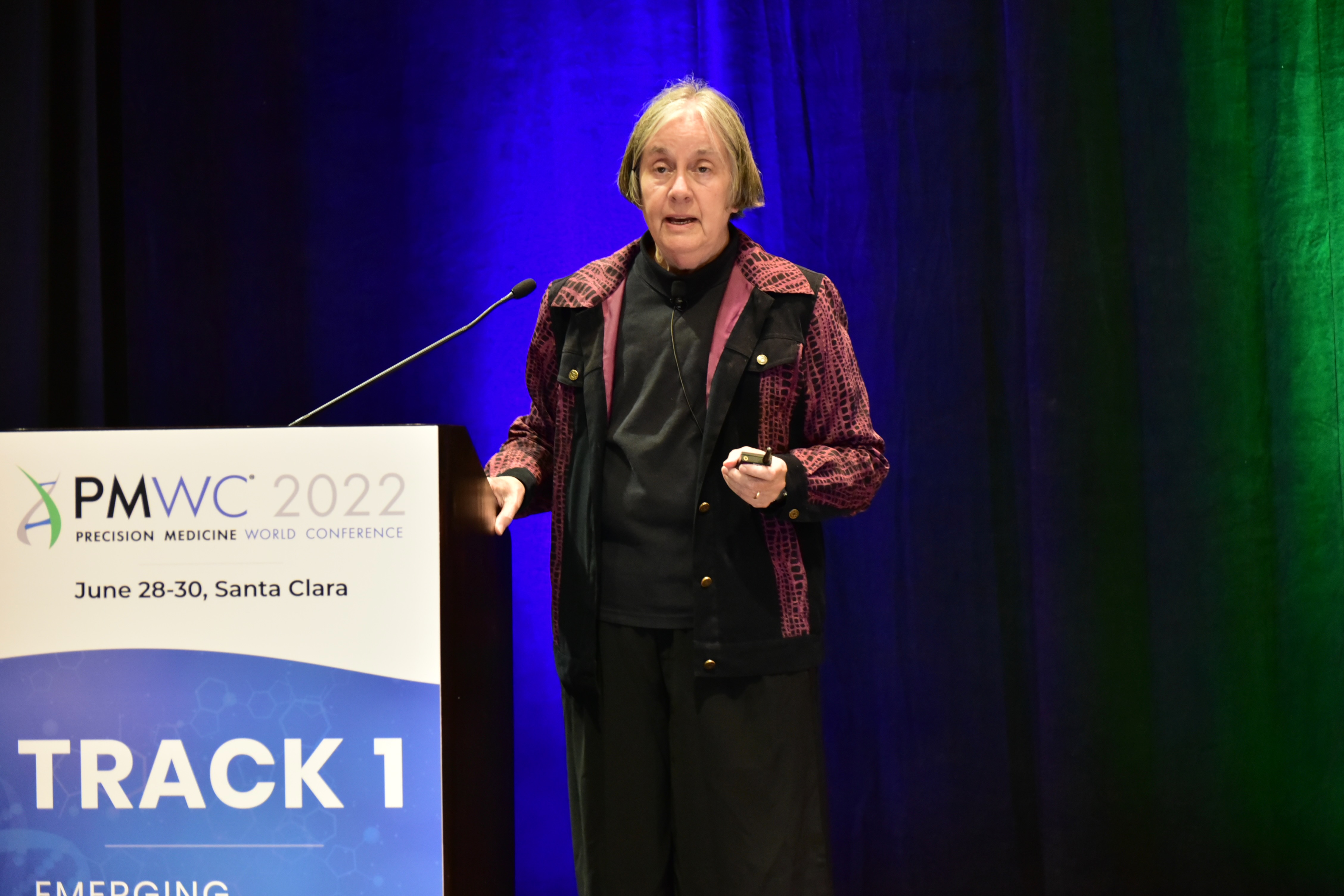 UC San Francisco scientists, experts and thought leaders participated in nearly 30 presentations and panels over the 3-day Precision Medicine World Conference (PMWC) held June 28-30, 2022. The forum drew more than 2,200 people from around the world to foster collaboration, expand the practice and realize the promise of precision medicine.
UC San Francisco scientists, experts and thought leaders participated in nearly 30 presentations and panels over the 3-day Precision Medicine World Conference (PMWC) held June 28-30, 2022. The forum drew more than 2,200 people from around the world to foster collaboration, expand the practice and realize the promise of precision medicine.
The opening day kicked off with a standing room only talk on “UC Precision Medicine Programs: Achievements and Challenges” with Keith Yamamoto, PhD, vice chancellor of Science, Policy and Strategy and director of Precision Medicine at UCSF. Yamamoto provided an overview of Scalable Precision Medicine Oriented Knowledge Engine (SPOKE) and specifically, its application during the COVID-19 pandemic. As published in May 2020, SPOKE predicted that the drug dexamethasone would help COVID patients on ventilators, based on what was happening in the patients’ lungs at the molecular level. Yamamoto also highlighted the challenges faced in precision medicine, including how it is critical to figure out how to better include social determinants of health such as people’s economic, social and community circumstances, and how to resolve biases in data and analyses that may “perpetuate racism, gender inequities, inaccessibility.”

Other highlights from day one:
- Sharmila Majumdar, PhD, faculty with UCSF Center for Intelligent Imaging (CI2), Bakar Computational Health Sciences Institute (BCHSI) and vice chair of the department of Radiology, joined in the “Next Generation Data Sharing - Discoverable, Accessible, Interoperable” panel and noted that “next generation data sharing has to have intelligence, core competency of each field (like genomics, imaging) to have trustworthy algorithms.”
- In the “Multi Factor Data Science to Advance Precision Medicine” session, Charlotte Nelson, PhD, from MATE Bioservices and Gundolf Schenk, PhD, from UCSF BCHSI dove further into SPOKE and UCSF’s Information Commons (IC), respectively. Schenk shared how IC allows for searches within deidentified clinical notes, images, and structured EHR data, which enables precision medicine research. Postdoctoral student Madhumita Shushil, PhD, showcased research on developing an end-to-end pipeline for phenotyping breast cancer patients with multimodal EHR data and deep learning, enabled by IC.
- Robert Wachter, MD, chair of the Department of Medicine and public figure during the COVID-19 pandemic, engaged in a panel on “Past, Present, Future - How will we manage the next pandemic?” Wachter advised more reliance on “asymptomatic test positivity rate - a metric to look at and piece of data most helpful in how to behave day to day” and opined on how COVID taught people to be nimble and prioritize equity, and how good communication requires education, trusted messengers, and implementation. [Video available here]
The second morning at PMWC featured Women’s Health with a line-up of UCSF-led sessions. Highlights from the session included:
- Aleksandar Rajkovic, MD, PhD, UCSF Chief Genomics Officer, kicked off the Women’s Health track with an overview on Women’s Health and precision medicine applications. His final comments coincided with the recent Supreme Court Roe vs. Wade decision and how it will impede fertility research, prenatal diagnosis, other lifesaving research, and women's participation in research.
- Hakan Cakmak, MD, associate professor in Obstetrics and Gynecology, presented on reproductive health.
- Laura Jelliffe-Pawlowski, PhD, professor of Epidemiology and Biostatistics and director of Precision Health and Discovery at the UCSF California Preterm Birth Initiative (PTBI), shared how in surveys women reveal that they want risk information around preterm birth. This counters feedback from doctors saying they did not want to scare women with too much information. Jelliffe-Pawlowski posed, “What if this information is treated like oncology or cardiology on sharing risk information?”

Left to right: Vivek Rudrapatna, MD, Ida Sim, MD,PhD, Mark Hoffman, PhD, and Julian Hong, MD, during the Opportunities and Challenges Using Real World Data panel.
The third day drew a full session to learn more about topics revolving around Real World Evidence (RWE) in a track featuring many UCSF speakers:
- Atul Butte, MD, PhD, director of UCSF’s Bakar Computational Health Sciences Institute (BCHSI), Chief Data Scientist for the UC Health System and Priscilla Chan and Mark Zuckerberg Distinguished Professor, chaired a track on “Realizing the Promise of Precision Medicine and Real-World Evidence”. He highlighted how the US has invested so much in clinical data in EHR systems, “it would be a national tragedy not to use this real world data to improve the practice of medicine.” Butte also raised the importance of unstructured clinical notes, stating that “UC EHR has 1.1 billion medications ordered, but the outcomes of these treatments for patients is somewhat buried in there. Real world data will help us understand whether these are working for our patients.”
- Vivek Rudrapatna, MD, assistant professor of medicine, and co-director of the UCSF Center for Real World Evidence (RWE), hosted the “Opportunities and Challenges Using Real World Data (RWD)” panel including fellow BCHSI affiliated faculty Ida Sim, MD, PhD, and Julian Hong, MD. Rudrapatna laid the groundwork of the session by first defining RWD as the routinely collected observational data related to healthcare outcomes and delivery, whereas RWE is the information about diseases and treatment effects learned from RWD. He shared that the interest in RWD and RWE stems from a variety of reasons such as the rising cost of high-quality evidence form costly clinical trials, limited cohorts in trials that may not adequately generalize to broader patient populations, and growing big data in healthcare.
- Ida Sim, MD, PhD, a primary care physician, professor of medicine and UCSF Director of the UCSF-UC Berkeley Joint Program in Computational Precision Health, discussed her work with data from wearables and sensors. Sim shared that “the opportunity is to get data from wearables directly into our care systems for both the process of care and the point of care embedded real world evidence studies.” Sim firmly believes that behavioral interventions are the “blockbuster drug” of the future and we need patient RWD to enable this.
[Both RWE Session Recordings are Here - UCSF-access only]
Jennifer Puck, MD, recipient of the PMWC Pioneer Award.
Jennifer Puck, MD, professor of pediatrics and immunology, received PMWC’s Pioneer Award for developing the newborn screening test for severe combined immunodeficiency (SCID), now adopted in the United States and a growing number of countries. This award is given to a venerable individual whose foresight and groundbreaking contributions to precision medicine propelled the movement in earlier years.
Puck stated that “Newborn screening for combined immunodeficiency, or SCID, has been transformative throughout the United States and several other countries. Instead of having to wait until serious or even life-threatening infections make doctors aware of this rare condition, affected infants are being diagnosed in the first weeks of life while still healthy, which leads to a much more successful treatment.”
The next conference will be held January 25-27, 2023.
See event photos
See Tweets from the conference
See Related Article from UCSF.edu
